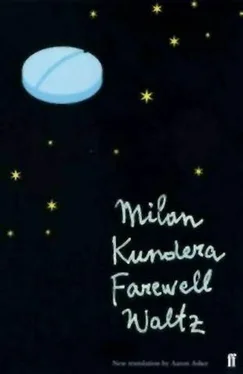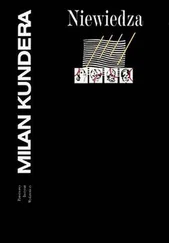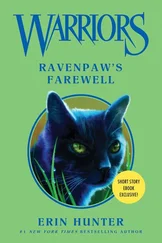He stopped the sedan at a spot with a scenic view. They got out, and he suggested they take a walk in the forest. They walked a few minutes and then sat down on a wooden bench dating from the time when people went by car less and appreciated excursions in the forest more. He kept his arm around Ruzena's shoulders and suddenly said in a sad voice: "Everybody imagines
I have a very happy life. That's a big mistake. I'm really very unhappy. Not only these last few months, but for several years now."
If Ruzena regarded the idea of a trip to Italy excessive and thought about it with vague suspicion (very few of their fellow citizens were allowed to travel abroad), the sadness that emanated from these words of Klima's had for her a pleasant odor. She sniffed it as if it were roast pork.
"How can you be unhappy?"
"How I can be unhappy…" said the trumpeter with a sigh.
"You're famous, you've got a beautiful car, you've got money, you've got a pretty wife…"
"Maybe pretty, yes…" the trumpeter said bitterly.
"I know," said Ruzena. "She's not young anymore. She's your age, right?"
The trumpeter saw that Ruzena was probably fully informed on the subject of his wife, and this angered him. But he went on: "Yes, she's my age."
"You're not old. You look like a kid," said Ruzena.
"But a man needs a woman younger than he is," said Klima. "And an artist more than anyone else. I need youth, you can't imagine, Ruzena, how much I appreciate your youth. I sometimes think I can't go on like this. I feel a frantic desire to free myself. To start all over again and in another way. Ruzena, your phone call-suddenly I was sure it was a message sent by fate."
"Really?" she asked softly.
"Why do you think I called you back right away? All at once I felt that I couldn't lose any more time. That I had to see you right now, right now, right now…" He fell silent and gazed into her eyes for a long while: "Do you love me?"
"Yes. And you?"
"I love you madly," he said.
"Me too."
He leaned over her and put his mouth against hers. It was a healthy mouth, a young mouth, a pretty mouth with prettily shaped soft lips and carefully brushed teeth, with everything in place, and the fact is that two months earlier he had yielded to the temptation of kissing these lips. But precisely because that mouth had charmed him, he had seen it at the time through a mist of desire and knew nothing of it in reality: the tongue had been like a flame and the saliva had been an intoxicating liqueur. Only now, having lost its charm, was the mouth suddenly what it was, a real mouth, an industrious orifice through which the young woman had already taken in cubic meters of dumplings, potatoes, and soups, a mouth containing teeth pocked with fillings and saliva that was no longer an intoxicating liqueur but the cousin of a glob of spit. The tongue in the trumpeter's mouth had the effect of an unappetizing mouthful impossible to swallow and unseemly to remove.
The kiss finally over, they got up and set off again. Ruzena was almost happy, but she was well aware that the reason she had telephoned the trumpeter and had
compelled him to come here was oddly being avoided in their conversation. She had no desire to discuss it at length. On the contrary, what they were talking about now seemed more pleasant and more important to her. Yet she wished that this reason, now being passed over in silence, were present, even if only discreetly and modestly. And so when Klima, after various declarations of love, announced that he would do everything he could to live with Ruzena, she pointed out: "You're very sweet, but we have to remember that I'm no longer all alone."
"Yes," said Klima, and he knew that this was the moment he had dreaded from the very first, the weakest link in his demagogy.
"Yes, you're right," he said. "You're not alone. But that's not really the main thing. I want to be with you because I love you, and not because you're pregnant."
"Yes," said Ruzena.
"Nothing's more horrible than a marriage that has no other reason than a child conceived by mistake. And actually, darling, if I may speak frankly, I want you to be the way you were before. There should be just the two of us, and nobody else in between. Do you understand me?"
"Oh no, that's not possible, I can't agree to that, I never could," Ruzena protested.
She said this not because she was convinced of it deep down. The definitive word she had gotten from Dr. Skreta two days earlier was so fresh that she was still disconcerted. She was not following a minutely
calculated plan but was completely absorbed by the idea of her pregnancy, which she was experiencing as a great event and still more as a stroke of luck and an opportunity that would not so easily come again. She was like a pawn reaching the end of the chessboard and becoming a queen. She was delighted by the thought of her unexpected, unprecedented power. She saw that at her summons things had been set in motion, the famous trumpeter coming from the capital to see her, to take her for a drive in a magnificent car, to make declarations of love to her. No doubt there was a connection between her pregnancy and that sudden power. If she did not wish to give up her power, she could not give up her pregnancy.
That is why the trumpeter had to go on rolling his heavy stone uphill. "Darling, it's not a family I want, it's love. For me, you are love, and when there's a child, love gives way to family. To boredom. To worries. To monotony. Lover gives way to mother. For me, you're not a mother but a lover, and I don't want to share you with anyone. Even with a child.''
These were beautiful words, and Ruzena heard them with pleasure but shook her head: "No, I couldn't. It's just as much your child. I couldn't get rid of your child."
Unable to find new arguments, he kept repeating the same words and dreading that she would finally see through their hypocrisy.
"You're over thirty. Haven't you ever wanted a child?"
True, he had never wanted a child. He loved Kamila too much for her to be hampered by the presence of a child. What he had just asserted to Ruzena was not pure invention. He had in fact been uttering exactly the same words to his wife for years, sincerely, without deceit.
"You've been married six years and don't have a child. It thrills me so to think of giving you a child."
He saw that everything was going against him. The exceptional nature of his love for Kamila convinced Ruzena of his wife's infertility and inspired misplaced audacity in the nurse.
It began to grow chilly, the sun was sinking toward the horizon, time was passing, Klima went on repeating what he had already said, and Ruzena repeated her "No, no, I couldn't." He felt that he was at a dead end; he no longer knew what to do and thought he was going to lose everything. He was so nervous he forgot to hold her hand, forgot to kiss her, forgot to put tenderness into his voice. He realized this with dread and tried hard to pull himself together. He stopped, smiled at her, and took her in his arms. It was a tired embrace of fatigue. He clasped her to him, his head pressed against her face, and it was actually a way of leaning on her, of resting, catching his breath, because it seemed to him that he lacked strength for the long road still ahead.
But Ruzena too had her back against the wall. Like him she had run out of arguments, and she felt you could not go on for long merely repeating "no" to a man you wanted to win.
The embrace lasted a long while, and when Klima let Ruzena slip out of his arms she lowered her head and said in a resigned tone: "All right, tell me what I should do."
Klima could not believe his ears. These were sudden and unexpected words, and they were an immense relief. So immense that he had to make a great effort to control himself and not show it too clearly. He caressed the young woman's cheek and said that Dr. Skreta was a friend of his and all Ruzena had to do was appear before the committee in three days. He would go with her. She had nothing to be afraid of.
Читать дальше










